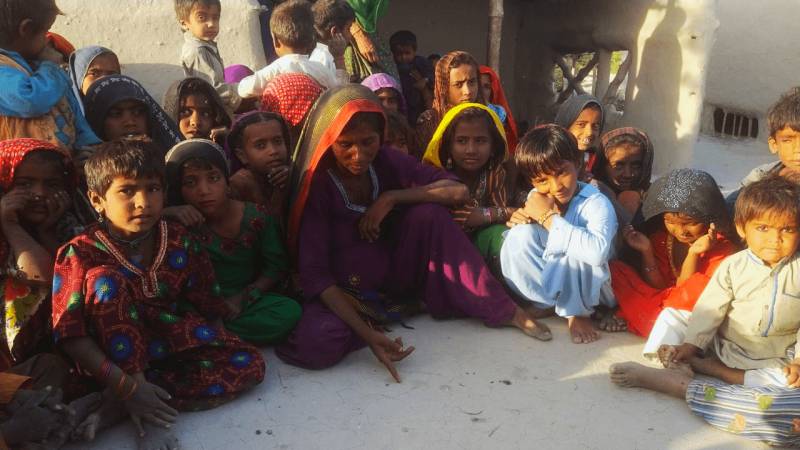
At least eight children have so far succumbed to an outbreak of measles in the coastal villages of Sujawal district, while another fatality has been reported from the neighbouring Thatta district. However, the extent to which the disease may have spread in these districts has yet to be determined.
Sujawal is one of the districts of Sindh besides Thatta, Hyderabad, Dadu and Kashmore, where the measles outbreak has reached alarming levels, local health officials say. Thus far, 17 children have been afflicted with measles in Thatta district, with at least one fatality from the infectious disease.
Ghulam Ali Richo, a resident of the coastal village of Talib Richo, in Sujawal, where at least four children have died of measles thus far, said that they do not know what was the reason for the death of the children.
He said that poverty, natural calamities, and diseases have ravaged their communities for years, leaving them disadvantaged when it comes to fighting diseases. He hoped the government would provide them with at least basic amenities to prevent the loss of precious lives to preventable causes.
Sujawal District Health Officer Dr Muhammad Hanif Memon attributed the surge in measles cases in the district to a lack of awareness amongst the public about the disease and preventive measures, apart from a polluted environment, malnutrition among children and an attitude of avoiding vaccinations.
When asked about the measures taken to curb the measles outbreak, Dr Memon said they had formed vaccination and survey teams, which he was personally supervising, to regularly visit remote villages to conduct a thorough survey and administer vaccines to measles-stricken children.
He added that a delegation of the World Health Organization had also visited the villages where measles cases had been reported. He said the survey teams conducted awareness sessions in the areas affected by the outbreak.
Dr Nazeer Jumani, who once headed the Expanded Immunisation Programme (EPI) in district Thatta, believed lack of awareness to be the major cause of the recent measles outbreak in the district.
“Mothers living in remote villages are completely unaware of initial symptoms of measles,” he said, adding that locals attempt to treat measles patients using traditional remedies which he believed were unsafe for children.
According to the World Health Organisation, measles is a viral infection transmitted from an infected person via infected droplets in the air around them.
Dr Jumani believed that poor immunity among children leads to a rapid increase in measles cases. He explained the symptoms of measles, including a runny nose, coughing, red and watery eyes and small white spots inside the cheeks during the first four to seven days of infection. Red spots on the skin develop as the effect of measles intensifies.

